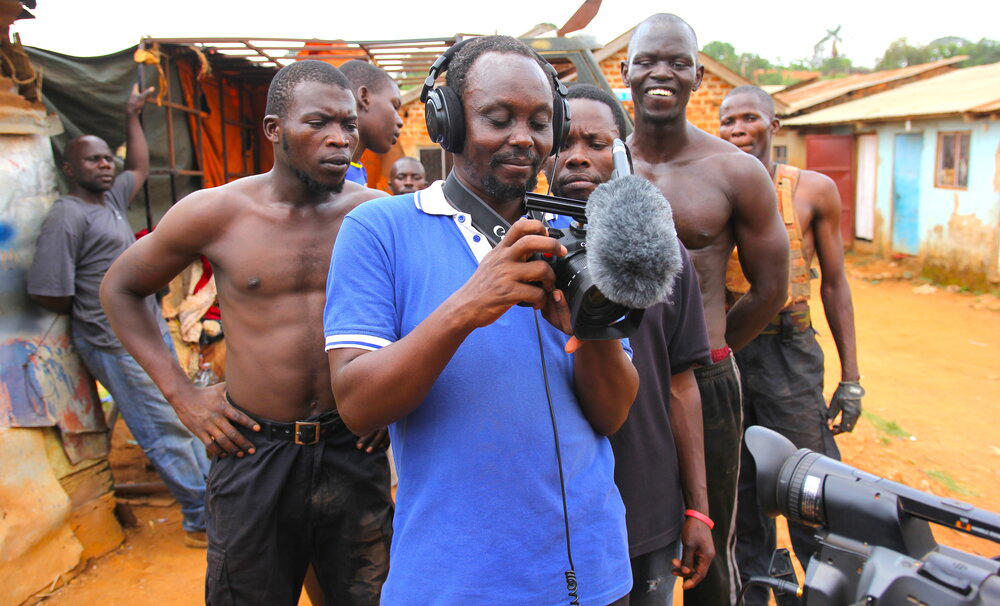There are a few essential ingredients for a Wakaliwood film, explains Isaac Nabwana in “Once Upon a Time in Uganda.” Weaned on Chuck Norris and Sylvester Stallone films during the ‘80s, the filmmaker from Wakaliga, a village outside of Uganda’s capital city of Kampala, doesn’t skimp on the action, having opened up an entire training academy to groom children to learn martial arts and how to act. There’s also the humor, usually supplied after a production wraps when V.J.s (short for “video jokers”) apply live narration, boisterously describing all the craziness on-screen. As Nabwana says, “Even if it’s a horror movie, even if it’s a horrible movie, you have to laugh.”
What Nabwana doesn’t say, nor does he ever have to in Cathryne Czubek and Hugo Perez’s deeply endearing documentary, is how much heart they have, often bringing together the community for feature shoots where the budget is less than $200 – the talent recoups by selling DVDs of the end result door-to-door – and finding scrappy solutions to imitating Western blockbuster pyrotechnics that may lack technical sophistication, but have enough pride in their handmade quality to more than make up for it. Czubek and Perez have much more refined equipment to work with, but they honor Nabwana with a portrait that would surely meet his standards for entertainment value, following Alan Hofmanis, a former programmer for the Lake Placid Film Fest, to East Africa, based off of just a trailer of Nabwana’s “Who Killed Captain Alex,” with the aim of bringing his movies to the masses.
As fans of international genre cinema may already know, Hofmanis isn’t entirely unsuccessful in bringing attention to Wakaliwood — “Captain Alex” and its follow-up “Bad Black” recently got the deluxe Blu-ray treatment from the American Genre Film Archive after becoming hits on the festival circuit, but getting money to finance anything more ambitious or simply provide a living wage for the crew proves elusive to Nabwana, who struggles with the assumptions that come with being featured on Vice and CNN. Czubek and Perez cleverly devise a set-up at the start of “Once Upon a Time in Uganda” that frames the documentary as if it’s taking place inside the dream Wakaliwood production, with a staged fight breaking out just over Nabwana’s shoulder in an early interview and an establishing drone shot of Wakaliga that give it the epic grandeur of a Jerry Bruckheimer movie, but their execution grows even more brilliant as the reality sets in that there may be no Hollywood ending in sight, moving back to earth as Nabwana and Hofmanis reach a crossroads about the best way forward.
“Once Upon a Time in Uganda” instantly joins the pantheon of great films about the heroics of low-budget filmmakers with company as recent as “Dolemite is My Name” to nonfiction entries such as “American Movie” and “Fitzcarraldo,” but rather than being about the making of any one specific movie, it takes on additional resonance as Nabwana attempts to build up his entire community around their ability to make films, a galvanizing notion for those who have long been written off at the bottom of the economic ladder. Although Czubek and Perez are careful not to suggest the calvary is coming any time soon, they celebrate what Nabwana and his collaborators do with limited resources with appropriate gusto and have as much to take pride in as their subjects.
“Once Upon a Time in Uganda” does not yet have U.S. distribution.




